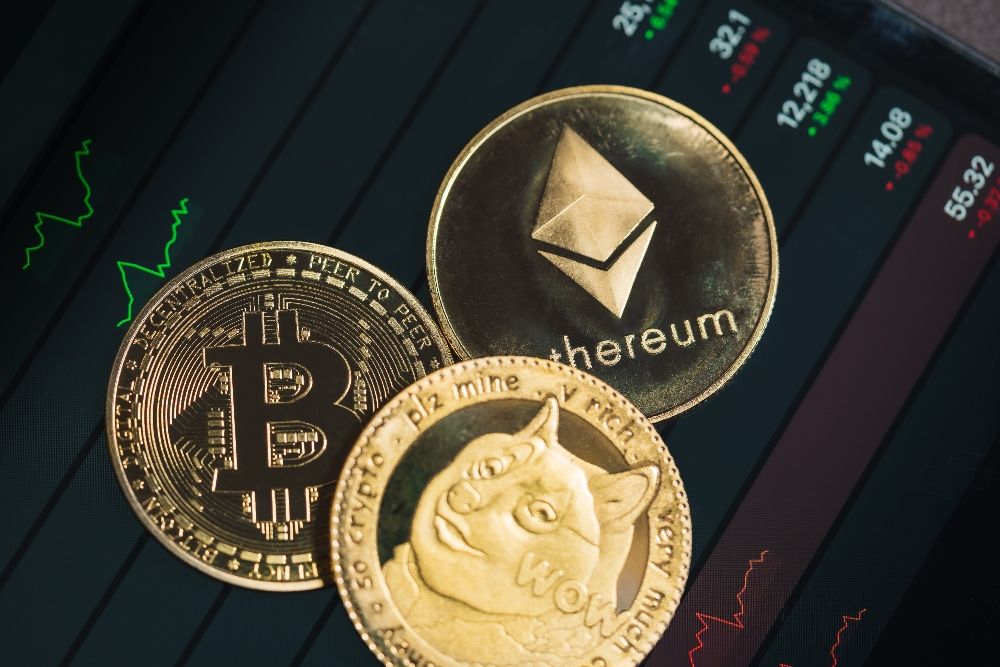Latest news about Bitcoin and all cryptocurrencies. Your daily crypto news habit.

This week in LATAM’s cryptocurrency landscape, Brazil continues to see an increase in cryptocurrency activity, with imports of digital assets reaching USD 1.4 billion in September, as Argentina moves forward on plans to regulate tokens.
Argentina to regulate the tokenization of real world-assets
The Argentine Fintech Chamber, in collaboration with Crecimiento, has proposed a plan to regulate the tokenization of real-world assets—often referred to as “RWA”—through a controlled testing environment known as a sandbox.
This initiative was announced during the Argentina Fintech Forum held on October 30 in Buenos Aires. Following the announcement, Santamaría provided further details about the project in an interview.
The sandbox initiative is part of a larger effort by Crecimiento, which is an organization focused on three key objectives.
These goals seek to encourage cryptocurrency adoption in Argentina through high-quality products, promote Web3 initiatives to answer current economic and financial difficulties and develop various recommendations to maintain regulatory and economic stability for these projects and their users.
These objectives work together to create a cohesive strategy.
In essence, the Argentine Fintech Chamber and Crecimiento are collaborating to develop legislation that would allow for the tokenization of real-world assets using the sandbox approach.
Crecimiento’s broader mission is to enhance crypto adoption, support innovative Web3 projects to overcome economic issues in Argentina and push for regulatory and economic stability to benefit these projects and their users, thus establishing a cohesive framework for advancement.
Brazil’s cryptocurrency imports increased by 40% in September
Brazil had a huge surge in digital asset imports, totalling $1.4 billion in September.
This is a 40% increase over the roughly $1 billion reported for the same month in 2023, according to figures released by the Central Bank of Brazil and local media on October 29.
Meanwhile, digital asset exports remained consistent, totalling $44 million in September 2024, a tiny decline from $45 million in the same period last year.
This means that Brazil’s net crypto asset trading was $1.385 billion, up from $987 million in September 2023.
The Central Bank’s report covers transactions involving cryptocurrencies and stablecoins, with stablecoins accounting for 70% of all activities.
The data shows a notable increase in cryptocurrency transactions in 2024 compared to 2023.
Between January and September, Brazil imported $13.7 billion in cryptocurrency, a significant jump from $8.4 billion during the same timeframe last year, leading to a 60% growth in net imports so far this year.
Polkadot announces a partnership in Brazil to advance blockchain innovation.
Blockchain companies aim to expand their reach in Latin America’s major economies, with Brazil as a key target.
Polkadot announced on October 29 that it has closed a partnership with the São Paulo government to promote the development of Web3-based businesses.
The association will provide free blockchain training for developers.
The launch will take place in December and is open to developers and businesses of any size.
Argentina to launch CUV accounts in dollars in 2025
According to Leo Elduayén, CEO and co-founder of Koibanx., a significant change in the Argentine financial system is expected by 2025: the integration of CVU accounts in dollars, allowing users to manage funds in dollars through virtual wallets or banking apps.
This will enable users to handle their funds in dollars using virtual wallets or banking apps, giving them increased flexibility and control over their finances.
As Elduayén suggests, we can anticipate a significant rise in Bitcoin prices, along with various solutions being developed to facilitate exchanging pesos for stablecoins and vice versa through banking apps and virtual wallets.
In this context, Koibanx has partnered with VISA to launch a platform for tokenized assets in Colombia, with plans to bring this initiative to Argentina in 2025, making payments and transactions easier with tokens linked to real assets.
Looking ahead, tokenizing deposits is expected to be implemented next year, allowing tokens to be used as a payment method.
The need for collaboration between fintech solutions and banking is crucial in today’s financial landscape.
Furthermore, the digitalization of physical assets via blockchain technology could enhance real-world assets more than 50-fold by 2030, giving users greater financial independence and expanded choices for their transactions.
The post LATAM crypto update: Argentina advances token regulations, Brazil’s crypto imports surge 40% appeared first on Invezz
Disclaimer
The views and opinions expressed in this article are solely those of the authors and do not reflect the views of Bitcoin Insider. Every investment and trading move involves risk - this is especially true for cryptocurrencies given their volatility. We strongly advise our readers to conduct their own research when making a decision.